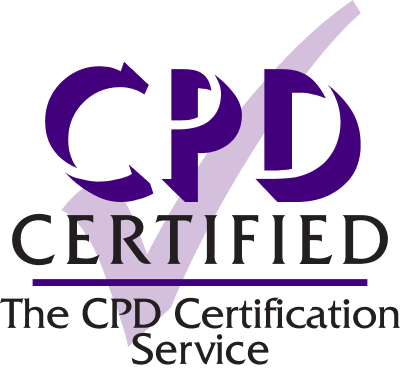Course overview
The proportion of financial-services leaders and employees who say critical-thinking skills are crucial for their business.
PwC (Accessed October 19th 2023).
The share of professionals in Britain and Germany reporting strong confidence in their critical-thinking skills.
The Stepstone Group (July 2023).
Duration: 2 weeks
In an increasingly complex, algorithm-driven world, critical thinking is a vital skill for everyone in business. Professionals must use data discerningly and interrogate the assumptions and claims of others. Only then will they be able to capitalise on their competitive advantages over machines and over peers less able to harness artificial intelligence (AI). All this means developing tools and strategies to avoid cognitive bias and error, to make rigorous arguments and to seek truth from facts.
Critical Thinking: Problem-Solving and Decision-Making in a Complex World, a two-week online course from Economist Education, shows participants how to interrogate assumptions, use data and combat cognitive bias to make better decisions. The course’s first module explores how everyone falls prey to uncritical thinking, including narrative oversimplification and confirmation bias, and provides tools to recognise and counteract them. The second module emphasises the importance of rigorous arguments based on data and research, while guiding participants to reframe complex problems and harness diverse perspectives.
The course is guided by Dr Tom Chatfield, an expert on critical thinking, as well as senior editors at The Economist, and features insights from guest speakers including the late Daniel Kahneman (1934-2024; filmed in 2023), a Nobel prizewinner. The curriculum uses real-world examples, including The Economist’s editorial processes, to demonstrate the crucial role of critical thinking in decision-making. Realistic scenarios and case studies challenge you to overcome oversimplification and faulty reasoning. The course encourages an approach to critical thinking that you can apply in your work, by fostering strategic pauses, self-reflection, investigation and collaboration.
By the end of the course, you will not only understand your cognitive strengths and vulnerabilities but also gain the tools to make decisions informed by data, stress-test business ideas and interrogate assumptions in a technology-driven world.
Is this course for you?
This course is designed for experienced professionals and emphasises the value of human critical thinking in a machine-driven world. Participants from diverse fields, such as marketing, consulting and financial services, will learn to interrogate assumptions, use data discerningly and identify essential questions that AI cannot. By embracing critical thinking, experienced professionals and aspiring leaders will be better equipped to stress-test business ideas, enabling them to avoid costly errors and make better decisions. This course is a must for those looking to stay relevant in the age of AI.

This course is certified by the United Kingdom CPD Certification Service, and may be applicable to individuals who are members of, or are associated with, UK-based professional bodies. The course has an estimated 12 hours of learning.
Note: should students wish to claim CPD activity, the onus is upon them. Economist Education and GetSmarter accept no responsibility, and cannot be held responsible, for the claiming or validation of hours or points.
Course overview
Course overview
Duration: 2 weeks
In an increasingly complex, algorithm-driven world, critical thinking is a vital skill for everyone in business. Professionals must use data discerningly and interrogate the assumptions and claims of others. Only then will they be able to capitalise on their competitive advantages over machines and over peers less able to harness artificial intelligence (AI). All this means developing tools and strategies to avoid cognitive bias and error, to make rigorous arguments and to seek truth from facts.
Critical Thinking: Problem-Solving and Decision-Making in a Complex World, a two-week online course from Economist Education, shows participants how to interrogate assumptions, use data and combat cognitive bias to make better decisions. The course’s first module explores how everyone falls prey to uncritical thinking, including narrative oversimplification and confirmation bias, and provides tools to recognise and counteract them. The second module emphasises the importance of rigorous arguments based on data and research, while guiding participants to reframe complex problems and harness diverse perspectives.
The course is guided by Dr Tom Chatfield, an expert on critical thinking, as well as senior editors at The Economist, and features insights from guest speakers including the late Daniel Kahneman (1934-2024; filmed in 2023), a Nobel prizewinner. The curriculum uses real-world examples, including The Economist’s editorial processes, to demonstrate the crucial role of critical thinking in decision-making. Realistic scenarios and case studies challenge you to overcome oversimplification and faulty reasoning. The course encourages an approach to critical thinking that you can apply in your work, by fostering strategic pauses, self-reflection, investigation and collaboration.
By the end of the course, you will not only understand your cognitive strengths and vulnerabilities but also gain the tools to make decisions informed by data, stress-test business ideas and interrogate assumptions in a technology-driven world.
Is this course for you?
This course is designed for experienced professionals and emphasises the value of human critical thinking in a machine-driven world. Participants from diverse fields, such as marketing, consulting and financial services, will learn to interrogate assumptions, use data discerningly and identify essential questions that AI cannot. By embracing critical thinking, experienced professionals and aspiring leaders will be better equipped to stress-test business ideas, enabling them to avoid costly errors and make better decisions. This course is a must for those looking to stay relevant in the age of AI.

This course is certified by the United Kingdom CPD Certification Service, and may be applicable to individuals who are members of, or are associated with, UK-based professional bodies. The course has an estimated 12 hours of learning.
Note: should students wish to claim CPD activity, the onus is upon them. Economist Education and GetSmarter accept no responsibility, and cannot be held responsible, for the claiming or validation of hours or points.
Get this course for your team
Leading organisations recognise the value of this course and invest in it to enhance their employees' skills and expertise.

How is this course different?
What will set you apart
The curriculum
Module 1
Recognising and overcoming uncritical thinking
Discover the negative effects of uncritical thinking by exploring narrative oversimplification, the availability heuristic, confirmation bias and constructive doubt.
- Identify the causes of cognitive bias
- Articulate your tendency to think uncritically
- Explore the availability heuristic and learn to think beyond the obvious
- Evaluate your assumptions and cultivate constructive doubt to avoid the trap of confirmation bias
- Propose ways to stress-test your ideas to reduce the risk of uncritical thinking
Module 2
Critical thinking in practice
Learn how to use critical thinking to analyse information, solve problems and make informed decisions.
- Examine the quality of information used for problem-solving and decision-making
- Explore how to present, defend and scrutinise arguments as a team
- Collaborate on reframing situations in order to challenge unexamined assumptions
- Reflect on the value of multiple perspectives and constructive disagreements
- Model good thinking by challenging assumptions and evaluating the quality of evidence
Course designers




Your skills recognised
Validate your skills online with an official badge from Economist Education.
Get more information
How you will learn
This online course is divided into manageable units designed to accelerate your progress:
Work through downloadable and online instructional material
Interact with your peers and tutors in reviewed small-group discussions
Enjoy a wide range of interactive content, including videos, podcasts and more
Receive a toolkit for practical use in your career
Apply what you learn throughout this two-week online course and develop the skills to put critical thinking into practice long after the programme has finished.
Your success team
GetSmarter, a provider of online education, offers a personalised approach to accelerate learning with support every step of the way.
Head tutor
A subject-matter expert who will guide you through content-related challenges.
Global success team
Available 24/7 to solve your tech-related and administrative queries and concerns.
A powerful collaboration
Economist Education is collaborating with GetSmarter, an online education provider, to create courses that add lasting value to your business and professional life.
About The Economist and Economist Education
For more than 180 years, The Economist has offered in-depth reporting of the news shaping the world. With its objective analysis and original insight, The Economist is one of the world’s most trusted brands in journalism.
Building on this legacy, Economist Education offers online courses led by expert practitioners and crafted with The Economist’s team of correspondents and editors. Since its launch in 2021, Economist Education has won the 2022 DPA Award for Best Digital Publishing Innovation, as well as the 2022 Digiday Award for Best Subscription or Membership Product.
About GetSmarter
GetSmarter, part of edX, partners with the world's leading universities and institutions to select, design and deliver premium online courses with a data-driven focus on learning. Technology meets academic rigour in GetSmarter’s instructor-led interactive online format, which allows for self-paced learning and a greater level of engagement.
Upgrade your skills
Strengthen your critical thinking to thrive in a tech-driven world.
Want to know more?
Payment options
You can pay your course fees before the course starts, or you may opt for a split payment plan on courses that are nine weeks and shorter. For courses 10 weeks and longer, there is a three-part payment plan available. To find out more about payment options please visit our Payment and Financing page, or contact an Enrollment Adviser, to find out which option you qualify for.
Seek employer assistance
By improving your skills and industry knowledge, you'll have an influence on the success of your organization. Why wouldn't you ask your boss to help you fund your studies if it's going to have an impact on the way you do business?
Of our past students, 37 percent have received financial assistance from their employers. You can ask for help, too. Here is a guide to show you how to request financial assistance from your employer.
If you are a Learning & Development (L&D) manager, or involved in training and upskilling for an organization, you can request information regarding our corporate offering on our GetSmarter for business page.
Manage your time
GetSmarter's learning model is designed to help you, as a working professional, improve your skills without compromising on work and family responsibilities. The course work is broken up into weekly, manageable bite-sized modules, with incremental deadlines, designed to help you pace yourself over the duration of the course and allow you the legroom to work when it suits you best.
At the beginning of each module you'll be presented with the course content and assignments necessary for completion. You also have access to your Success Adviser who will help you manage your time, and support you with any administrative or technical queries you might have.
Discover the Online Campus
The Online Campus will be your virtual classroom for the duration of your course. Through its easy-to-use interface you'll have access to a diverse variety of course content formats including: interactive videos, module notes, practice quizzes, presentations, assignment briefs, and additional web resources.
On the Online Campus, you'll also be able to ask questions and interact with your fellow students and teaching team through the discussion forums. If you are looking for your Online Campus login, please visit your Account page here.
.jpg)

